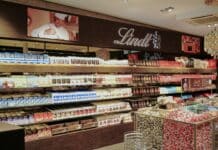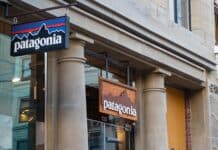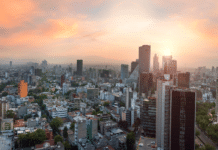
Over the last month, many of us who work in nonessential industries have learned to communicate in new ways, work remotely, look for opportunities in unfamiliar places and pursue our educations or hobbies online. We have defined a novel way of interacting with the world that requires us to leave the house only rarely if at all. We have demonstrated that while protecting life in the only way that we can, life still exists, even if it moves at a slower pace and in a more solitary way.
For those of us who work in essential industries from healthcare to supply chain and distribution, however, COVID-19 has brought a flurry of activity. Many find themselves overworked. Many businesses are understaffed and vastly ill-equipped to handle the high stress and material demands of the pandemic.
Still, we try both as individuals and as businesses to support each other. Large conglomerates are doing their part to ease the burden on essential workers. Craft breweries and perfumers have switched to making hand sanitiser. Ford and GE are building ventilators as fast as they can, and even celebrity tattoo artist Kat Von D is using her Instagram to urge other tattooists to donate their gloves and masks to local hospitals. We need their continuing strategic creativity now more than ever.
Here are five examples of businesses working flatten to the curve – proof that it’s the people behind the businesses, not the businesses themselves, that are what’s truly essential.
Event Production Companies in Pop-up Testing Sites
As hospitals scramble to procure resources for testing, some event production companies have banded together to create mobile testing sites for high-risk areas. Well-equipped tenting, lighting, cabling, and fabrication companies around the world are coordinating with their local hospitals to offer whatever resources they can to alleviate some of the logistical stress on medical professionals.
Got Light, a lighting company, is giving their equipment and expertise to keep hospital screening tents in San Francisco lit. The company, a long-time service provider to UCSF hospitals, is using the opportunity to keep their employees at work during the COVID-19 events ban.
Other events companies are donating time and materials ,including N95 masks from their fabrication shops, as well as complete pop-up tents or buildings. Wizard Studios of New York is offering their large-event coordination know-how as well as power, audio and video equipment to the city’s testing sites.
Keeping Kids Fed
With 22 million children in the US relying on reduced-price or free school meals, local restauranteurs are helping to keep students fed during the crisis, regardless of who has pre-paid and who relies on assistance. As the stay-at-home orders proliferate, countless families find themselves with more mid-day mouths to feed. Community initiatives have been set up with the realisation that millions of school-age children could go hungry without access to the lunches and snacks offered during school hours.
For example, Meddy’s, a Mediterranean restaurant in Wichita, Kansas, has teamed up with the local school board to prepare and deliver thousands of sack lunches to families affected by the closures. With organised out-door pick-up locations, parents can wait in line for their child’s lunch, which is delivered to car windows and doesn’t require families to enter a facility.
Meddy’s owners haven’t yet indicated how long they can offer the free lunches for. However, their contribution of 1,200 meals a day has yet to slow.
Medical Firms Change their Focus
Medical firms around the world are pivoting their R&D departments to focus on creating a COVID-19 vaccine. While the number of infections grows, time is of the essence for scientists to develop a vaccine that could potentially save millions of lives.
Japanese firm Taneka has begun the process of testing antibodies for vaccines by using blood plasma from patients who have recovered from the virus. Scientists at the Wilson lab at Scripps Center San Diego, previously focused on the study of HIV and influenza, are working tirelessly to adapt SARS research from the 2002 outbreak to its newer, deadlier cousin, COVID-19. According to the lab, research shows a vulnerability consistent in both viruses, which the SARS antibody could potentially attack in the new virus.
Food Delivery on the Front Lines
Since their inception, food delivery apps have been a quick, convenient option for tired parents, double-shift workers and hungry college students. Now, many of these delivery apps have manipulated their platforms to offer respite to overworked medical personnel.
GoPuff, a food and drink delivery service, has promised one US$1 million worth of free orders to hospital workers during the pandemic. They have updated their methods to provide non-contact delivery and have also re-worked their peak delivery capacity from late-night to daytime to accommodate people adhering to stay-at-home recommendations.
Nonprofits Slice out Hunger and Pizza to the Polls are collaborating with pizza delivery app, Slice, to deliver free pizza to medical professionals on the job. Businesses and individuals can contribute on the app, and one hundred per cent of the donations go to feeding first responders.
Grocery Stores Accommodate High-Risk Shoppers
As an essential business, grocery stores are taking every precaution to keep their employees and shoppers healthy. Around the globe grocery store chains, many of them family businesses, are offering specialised hours to accommodate high-risk shoppers, including the elderly and those with compromised immune systems.
Whole Foods in Canada and the US has added morning hours for seniors over sixty, and in the UK, for shoppers over seventy years old. Dollar General and Target have also added specialised morning hours specifically for the elderly, and Walmart is now offering an hour on Tuesday mornings for shoppers over sixty.
Grocery stores including Kroger and Fairway are also offering pick-up and grocery delivery, promising thorough cleaning procedures during closed hours and offering disinfectant wipes to those who choose to shop in person, rather than with an app.









